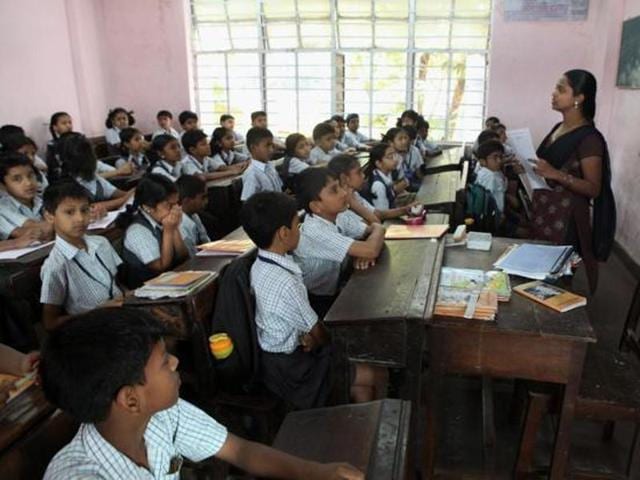Chandigarh school heads demand informal education system
Teachers’ training, informal education system, less projects for students, abolition of internal exams and change in CCE pattern are some of the key suggestions, city teachers and school heads have given for the ongoing formulation of the new education policy 2016.
Teachers’ training, informal education system, less projects for students, abolition of internal exams and change in CCE pattern are some of the key suggestions, city teachers and school heads have given for the ongoing formulation of the new education policy 2016.

Stating that, school heads and teachers directly set the school’s tone, the ministry of HRD through the Central Board of Secondary Education (CBSE) has asked the stakeholders to submit their views and feedback for the education policy.
Atul Khanna, director Strawberry Fields World School, Sector 26 said, “The new education policy should focus on inclusion and skill building. With a large youth population, India’s biggest challenge would be to include more and more children into formal and informal education systems and to provide skills that make them employable.
Unless we do that, we won’t be able to arrest either the brain drain or frustration and anger that may otherwise erupt.”
Meanwhile, ABS Sidhu, principal of Saupin’s school, Sector 32 suggested that under the new education policy, there should be a provision to select at least six B.Ed students who could join private schools to undergo six-month training at a nominal salary.
“The B.Ed correspondence course does not train students at all; they need to have practical training to be a teacher,” he added.A majority of teachers also believe that the duration of each lecture should be shortened up by 10 minutes and the burden of extra assignments and projects should not be added.
While, talking about internal exams and external exams conducted by schools and the board respectively, Arvind Goyal, city based biology expert said, “Class 10 board examination should be held as an external exam conducted by a centralized exam conducting body and not as an internal exam conducted by the school itself. When the examination is conducted internally then students, teachers and the school tend to take it casually and moreover the result may not be an actual reflection of the academic level of students. Such skewed results raise expectations of parents and teachers from the A1 grade /CGPA 9 and above holders.”
He also added that, “I have seen most of students who due to this internal examination system scores A1 grade or CGPA 10 in class 10 may not be able to repeat the same performance in Class 11 and 12. As a PMT trainer, I have also observed that the academic level of students who come to Class 11 was much better before the CCE and Internal Board Exam was introduced in class 10.”





